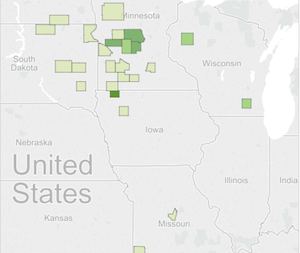For new college graduates, the job market can be a scary place.
In an attempt to alleviate some of the fear, the University of Tennessee at Chattanooga has invited Ruth Mantell, a personal finance reporter for MarketWatch, a digital branch of The Wall Street Journal, to present a program titled "Getting a Job, Changing Careers: Navigating the World of Work."
Among the topics she'll tackle on March 30 will be the relative value of a graduate degree, the benefits and drawbacks of unpaid internships, job hopping and salary negotiation and, of course, where the jobs will be in the coming years.
She shared some of her insights in a phone interview.
Q: Is graduate school a good option?
A: The first question to ask when considering graduate school is whether it is a necessary step.
"Some fields, you're not going to be able to progress without a graduate degree," she said.
Mantell, who has a master's degree in journalism from Northwestern University and is in the process of completing a master's in economics at Johns Hopkins University, said her impression is that more students are enrolling full-time in graduate programs while the job market is weak.
However, the Law School Admissions Council recently revealed applications to law school are down 11.5 percent, the lowest since 2001.
The drawbacks of grad school, Mantell said, include spending excess money and accruing debt in fields that don't require graduate degrees or where they might not be entirely helpful. The return on investment is not dependable. "They aren't going to see that paid back anytime soon," she said.
According to the website finaid.org, the average cumulative debt for graduate and professional students is about $40,000, with law and medical students carrying most of that burden at an average of $80,000 and $119,000 in debt, respectively.
Q: Will prospective employers be concerned if an applicant has switched jobs often?
A: "It's much more normal these days to jump from job to job," Mantell said. "But you can definitely over job hop. You don't want potential employers to see you as somebody they'll hire and who won't stick around."
According to a 2009 report from the Bureau of Labor Statistics, the average American worker changes jobs every five years.
Moving jobs, she said, can help increase salary level. Staying in one place can stick a person on a small annual raise pattern, whereas switching companies provides the opportunity to ask for a higher wage.
Q: How do you negotiate an entry-level salary?
A: Begin with research, Mantell advised. Look at online tools, see what people are earning in your chosen field and examine the geographic cost of living. "If you feel you're a competitive candidate, if you're a hot prospect, you're worth it, and you can ask for a little more money," she said.
She said it is important to keep a certain macroeconomic outlook in mind: "There's so much competition, you can't ask for too much more because there are a lot of other people who are willing to do it for less."
Q: Are unpaid internships worthwhile?
A: "You'll gain experience, and you'll look a lot more attractive to potential employers," Mantell said.
Sometimes, the experience-building stage lasts past college, either through continued internships or graduate school, she said.
Last year, the U.S. Department of Labor released a six-factor standard to differentiate between an employee and a trainee (intern). Only if all six criteria are met may one be considered a trainee and able to work outside the auspices of the FLSA's minimum wage and overtime provisions.
Q: Does networking really help?
A: In a word, yes. Networking, Mantell said, is extremely important.
"Networking helps you find out about opportunities that aren't available publicly."
Even if it doesn't lead to a job, or even a formal interview, a conversation can be helpful down the line, especially for younger job seekers who are learning to communicate on a professional level. Informational interviews, experts say, can be excellent practice.
Q: Where are the jobs?
A: According to the Bureau of Labor Statistics, the job sectors expected to see the largest wage and salary employment growth between now and 2018 include professional and business services, retail, government, accommodation and food services, and health care and social assistance.
"I don't think any of them are surprising," Mantell said. "They're a bunch of the usual suspects, but that's good, especially for job seekers because that helps them plan their education and that helps them plan their career."


